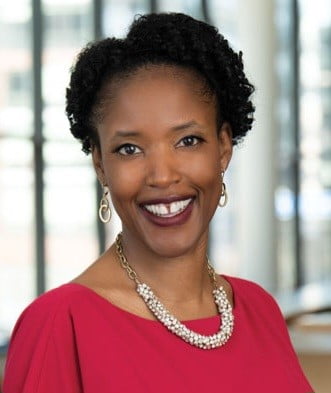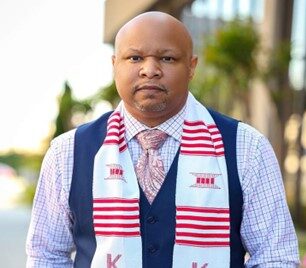NASHVILLE, TN — The John Lewis Way Committee, the USPS, government and community leaders, civil rights icons, and others joined American Baptist College’s administrators, students and staff on Thursday, August 24, for the city of Nashville’s celebration of the U.S. Postal Service’s first-class ‘Forever’ stamp honoring ABC alumnus and former U.S. Representative John Lewis. In the words of Metropolitan Nashville Davidson County Council Member At-Large Zulfat Suara, chair of the John Lewis Way Committee, it was “a historical moment, on a historical day, for a historical man.”


“It’s a privilege to represent the women and men of the U.S. Postal Service, as we honor and celebrate the life and legacy of Congressman John Lewis with our new Commemorative Forever stamp,” said Tennessee District Manager Omar Coleman. “Congressman Lewis fits the most crucial objectives of our stamp program, which are to increase awareness and celebrate the people, places, and things that best exemplify our country.” Deputy Mayor Brenda Haywood told the audience about her childhood years as one who integrated Stratford School and how she lived in a neighborhood that was predominantly white. Therefore, seeing Rep. Lewis on television, during the march on Washington, then as a civil rights activist, she marveled at his drive for justice. “To commemorate this great man with a USPS stamp is an honor,” said Haywood.
In welcoming guests, ABC President Forrest Harris shared a story of Lewis’s time as a student at the College, when he missed his own graduation because he and several classmates were in jail for protesting for civil rights in Hinds County, Mississippi. Harris read a letter that Lewis wrote to the registrar at the time, and noted how fitting it is that Rep. Lewis mailed the letter to the College more than 60 years ago and today has a stamp in his honor.
Former State Senator Brenda Gilmore chaired the Nashville Unveiling of the Rep. John Lewis Stamp. She praised the audience for their presence. “Rep. Lewis’s work in civil rights showed his commitment to justice for all people and that he is most deserving of this USPS stamp,” said Gilmore. The former Senator thanked the United States Post Service for making the Lewis stamp a “Forever Stamp” as we will forever remember the sacrifice and contributions of Congressman John Lewis in Nashville and this country, she added.”

Jerrick Lewis, the nephew of Rep. Lewis, thanked the College and the Nashville Community for this continued outpouring of support for his uncle. “We appreciate you for keeping his legacy present in our lives.” Members of the Lewis family could not attend the event and sent their heartfelt thanks.
Rep. Lewis came to Nashville to attend American Baptist College and graduated in 1961. He missed his graduation because he was protesting in Jackson, Mississippi for equality in public transportation. After graduation from ABC, Rep. Lewis moved to Atlanta and later returned to Nashville to attend Fisk University and earned another degree in 1967. “We are proud of our shared relationship with ABC for Rep. Lewis and the work he did to fight for justice in Nashville and throughout the world,” said Fisk
University Distinguished Professor of Social Justice, Dr. Richardo Guthrie. The Lewis stamp was made public on July 21. The ABC event was an opportunity for the city of Nashville to celebrate the occasion and his local ties. Sponsors included the U.S. Postal Service, the John Lewis Way Committee, and American Baptist College. The John Lewis Way Committee was established to hold a celebration following his death in 2020 and worked to get the downtown street named in his honor, and continues the celebration each year with his family in attendance.














Post Jacksonville – an uneasy life in Douglas County!
After reading the article, “Racist attacks spread unease,” I drove by a local Dollar General and paused to think about the innocent employees and customers inside. That led to thinking about what occurred at the Dollar General store in Jacksonville, Florida where three African Americans were gunned down by a racist, an atrocity that left me asking, “Charleston, Buffalo, now Jacksonville, when will this madness end?”
“Why is there this constant hate even after all we’ve been through?” asked Arthur Reed, founder of Houston-based Stop the Killing. “We are a people that have moved on. We never tried to overthrow the government. The constant threats are mind-boggling.”
Figuring that I was not alone grappling with these questions, I reached out for a sanity check to a few locals whose opinions I value. Unsurprisingly, like me they struggled with frustration, outrage and what to do next.
But first for context, let’s look at the undeniable facts.
According to the FBI, there were nearly 13,000 victims of hate crimes in 2021 and Black people were the most targeted of all groups accounting for nearly 4,000 of those victims.
According to a 2022 report by the Pew Research Center, nearly 33% of Black adults were worried almost daily that they might be attacked because of their race. By comparison, 21% of Asians adults and 14% of Hispanic adults felt similarly, while just 4% of White adults reported feeling the same. That study found that nearly 3 in 10 Black adults said that they had changed their daily routine or schedules in the previous years because of those fears.
Say what you will readers, the data speaks for itself and does not require a Ph.D in Applied Mathematics to see that life has become a lot more dangerous for African Americans, especially in recent years due to racist attacks and toxic national rhetoric once subtle, now seemingly an unpunishable badge of honor.
“Terry, when I heard the news, I wondered how someone so young could have such hate in them,” said Anne, the first person I heard from. “I thought of the lives taken because of something beyond their control, the color of their skin. I thought of the people who will mourn them and the unfinished lives they will never live. Then I moved on with my day without giving it any more thought until your email arrived. It made me realize that I am numb to these senseless acts of violence against Black people. Numb! That’s as tragic as these tragedies themselves! They are becoming so frequent that the thought is “Oh no, not another one; that’s a damn shame.” And we move on. What does that say about me? About my humanity? My empathy?”
“I’m most concerned about the disregard for human life,” wrote Louise. “The killer stated that he hated Black people. How many other people feel that entrenched in their feelings about other races to the extent that we have no value, no redeeming qualities to live? As a nation, we need to adopt an “each one, reach one” mentality. We should use every opportunity to bridge relationships with different races, to show our humanity, and to speak out against racial injustices.”
Continued Anne, “I go back to my original question. How could a 21-year-old have so much hate for Black people that he would hunt them down, kill them, and then kill himself? Was it not enough to rant and rave on social media or whatever other nonviolent outlet there is? What’s next? Who’s next? That young murderer legally purchased his weapons. Yet he was involuntarily committed for a mental exam in 2017. Where did this hate come from? Political rhetoric?”
“As a store manager, I’m acutely tuned into customers who come into my establishment,” said Robin who told me that she has an exit plan in place. “Rather than a customer committing acts based on racial hate, top of mind for me is what that unhappy customer may do once he leaves my store.”
“There’s another angle to these tragedies and that is mental illness,” said Louise. “Mental illnesses manifest in different ways. When we suspect someone is acting in a manner that appears contrary to socially acceptable behavior, or one who expresses an intent to harm himself or others, those are red flags. We don’t have to take direct action, but we do need to seek the help of experts immediately.”
In the end, I and many others are flummoxed as to what positive change could look like and, more important, how we could protect ourselves if – correction, when – another racist attack will befall us.
“I haven’t even begun to think about my safety as I walk into the next Dollar Store,” said Anne. “Is that because although I’m Black, I don’t live in a predominantly Black area? I feel safe in my community of Douglas County. Did those poor souls in Jacksonville feel safe in their community?”
“I am going to become more aware of my everyday comings and goings,” wrote Louise. “I’ll continue to either speak up or excuse myself from conversations with uninformed people who wholly disparage or make generalities about other races. I believe the change has to start within each of us, the things we say, the thoughts we fester, and the fundamental attribution errors we make every day.”
So, I’ll end with repeating the question, “Charleston, Buffalo, now Jacksonville, when will this madness end?”
Lord knows that I wish I had the answer.Terry Howard is an award-winning trainer, writer, and storyteller. He is a contributing writer with the Chattanooga News Chronicle, The American Diversity Report, The Douglas County Sentinel, Blackmarket.com, co-founder of the “26 Tiny Paint Brushes” writers guild, recipient of the 2019 Dr. Martin Luther King, Jr. Leadership Award, and third place winner of the 2022 Georgia Press Award.